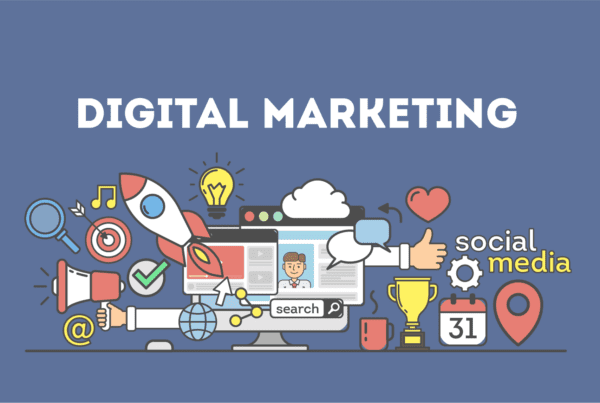What is a content management system? Building a site without writing all the code from scratch is possible with a Content Management System. A CMS is a software application used to create and manage a website while allowing several contributors to add, edit, and publish content via a human-friendly interface. So, you can focus on boosting your site’s performance and let your Content Management System handle all the basic infrastructure. CMS is suitable for both web content management (WCM) and enterprise content management (ECM).
What Is CMS?
The following features explain in detail: what is content management system:
- Digital: A CMS is a digital application that you can use online (sometimes offline) on computers, mobile phones, and tablets.
- Content creation: It allows you to design, create, format, and publish content. You can add media, text, files, videos, quotes, and any type of content.
- Content storage: It stores content in a database, all in one place, consistently. The hosting type and supported database depend on the CMS you opt for.
- Multiple user access: It provides access to several users. The users require permissions for admin, author, and editor roles.
- Publishing: It allows you to organize and present the content on the front end of a live website. Some CMS also allow private or offline publication.
What Is the Difference between ECM, WCMS, and CMS?
All three manage content but are different from one another as follows:
ECM |
WCMS |
CMS |
| It can manage both structured and unstructured content. It incorporates software, strategies and security for effective content management. | A web content management system is specifically for web content like e-commerce websites containing product pages. It provides publishing tools and promotes collaborative authoring. | It is the precursor to Enterprise Content Management or ECM. The CMS software allows the creation, management and storage of digital content. It is ideal for structured content like documents or database records |
How Does a CMS Work?
Creating a website sounds intimidating to a person with no coding experience. But when you use a CMS, you need not worry about the code. The exact working of different content management systems differ, but the basics remain the same.
You will have an interactive dashboard where you will be able to manage all the crucial aspects of your website. You can access the content creation tools, marketing options, plugins, settings, comments, events, and more by clicking on different tabs present on a single dashboard.
To create a post, you will just have to type your text in the simple interface of your content management system’s text editor. You can incorporate images from the media library and easily perform everything from creation to publishing.
Important Parts of CMS
A CMS comprises two core components that together function to help you maintain a website:
- Content management application (CMA): A graphical user interface allows you to plan, create, edit, and remove content from a site. CMA does not require any HTML knowledge.
- Content delivery application (CDA): The component that provides back-end services. It supports the management and delivery of the website content you create in the CMA.
Benefits of Content Management System
Now that you know the answer to the question: what is content management system, the following points enumerate the key benefits of using a content management system.
- Easy to use: The graphical user interface of CMS makes it easy to use even for those with limited technical knowledge.
- Easy search: Every CMS has a built-in search function that enables you to hunt for information by simply entering the search term and accessing a list of relevant items.
- Easy content management: Creating, editing, publishing, and removing content is possible with a few clicks.
- Ease of access: Since CMS is browser-based, all you need is a device connected to the internet to access a cloud-based or on-premises CMS.
- Multiple user access: It is collaborative and allows easy management of publishing permissions. Any number of users can access it.
- Real-time content update: You can manage and update content instantly using a CMS.
- Scalability: It is easy to scale and does not require technical expertise. You can roll out an update with ease.
- Reduced reliance on software developers: Using CMS to publish web pages reduces a company/individual’s dependency on front-end developers, making the process quicker and easier.
What to Look for in a CMS?
Before choosing a CMS, deciding how you want your website and content to appear and be consumed is important. Considering your business problems and specific requirements is more appropriate while choosing a CMS rather than opting for the most popular option. Here are some features to consider while making your decision:
- Powerful content editor: Opt for a CMS that offers both code-based and visual editing options. Check out the drag-and-drop builders.
- Core CMS functions: Check out the following core functionalities: indexing, search, and retrieval for easy content access, format management, revision features, publishing options, and incorporating user roles.
- Access: A CMS must provide ease of access to third-party themes, integrations, and plugins for overall site improvement.
- Marketing Features: Look for features and integrations for email marketing, coupons, and social media. It must have e-commerce capabilities to facilitate product selling.
- Flexibility: A good CMS provides mobile responsiveness and custom code control.
- Multilingual functionality: 75% of internet users do not communicate in English. A CMS must offer a translation service.
How to Build a Website Using CMS?
Build your website with a CMS by following the general sequence of steps given below:
- Purchase web hosting
- Select a domain name
- Install a content management system software of your choice on your hosting.
- Configure the CMS settings to control your site’s look, marketing, and overall functions.
- Write content using the CMS interface.
What Are Examples of the Best Content Management Systems?
What is the best CMS platform? Your business and budget requirements decide the best CMS for you. Some popular content management systems include:
1. WordPress
WordPress holds a record of powering 43.3% of websites on the internet. It is a popular blogging platform and has the flexibility to support different types of websites.
It has a dominant share of the CMS market due to the following striking features:
- It is an open-source, free, user-friendly CMS.
- A WCMS based on PHP and MySQL.
- It can be used in the cloud environment or deployed on a local computer.
- Highly customizable and supports a wide range of themes and plugins.
2. Joomla
It is also an open-source web content management system built using an MVC framework. It is ideal for a website that requires comprehensive content management, such as educational sites or social networks.
Joomla offers the following features:
- RSS feeds and blog posts
- Caching
- Easy updates
- Integrated help system
- In-built search
- Supports language translation in 70+ languages
3. Drupal
It ranks second in the list of the most popular content management system after WordPress. If you ask CMS experts: what is content management system? They will cite Drupal as the best example. It has the following key features:
- Provides complete control over content presentation and user permissions
- It is fast loading and secure.
- It supports 100+ languages.
- Provides ready-made templates for industries like e-commerce and tourism.
4. Magento
It is popular for e-commerce websites due to the following striking features:
- Catalog management.
- Order management
- Search Engine Optimization
- Advertising and marketing
- Easy checkout and payment modes
5. Squarespace
It is one of the simplest content management systems. It can be used by store owners, bloggers, professionals, artists, and laymen.
The core features are:
- It has intuitive social media and CMS marketing integrations.
- Offers templates and an easy-to-use dashboard.
- It has a drag-and-drop builder.
List of Most Popular Websites Created With CMS
Different industries opt for different content management systems. Here is a list of the most popular websites created using WordPress as a CMS:
- BBC America
- OptinMonster
- Van Heusen
- United States Mission Geneva
- Harvard University Gazette
Websites created using Joomla as a CMS:
- Harvard University
- Linux
- United Nations Regional Information Center for Western Europe UNRIC
Websites created using Drupal as a CMS:
- NASA
- Tesla
- The Australian Government
Conclusion
A well-designed site maximizes reach, brings traffic, and engages customers. Content management systems are the best partners for the overall development of a website. Choose the best CMS as per your requirements and bring your products to the forefront in an aesthetically pleasing manner that attracts your target audience.
If you want to learn more about Content Marketing, then enroll in our Advanced Content Marketing Certification Training Course. Master various aspects of planning and executing content marketing strategies to create impressive content with greater efficiency and impact. Start learning today!
FAQs
1. Is a CMS SEO-friendly?
All CMS may not be universally good at SEO. While some content management systems are SEO-friendly as they have automation for common on-page optimization tasks, including title tags, alt text for images, URLs, internal linking, and more, the others are not. If search engine rank is important for your business, you must opt for a CMS that automatically supports SEO or plugins that enhance your website’s visibility on other platforms.
2. What technology is a content management system built on?
Most CMS platforms are built using common programming languages, such as .NET, C#, Java, PHP and Python. They use CSS to create responsive designs.
3. What type of websites can we build using a CMS?
The popular content management systems allow you to create any type of website, such as
- Static websites
- Online courses
- Blogs
- Portfolios
- e-commerce stores
- Social networks
- Forums
- Membership sites
Ultranet –
For enquiries on any of our expertise or services, whether it is for website design & development, mobile application development, or digital media marketing, please feel free to contact or WhatsApp +6016-2032 000, email [email protected] or visit https://ultranet.com.my Thank you



